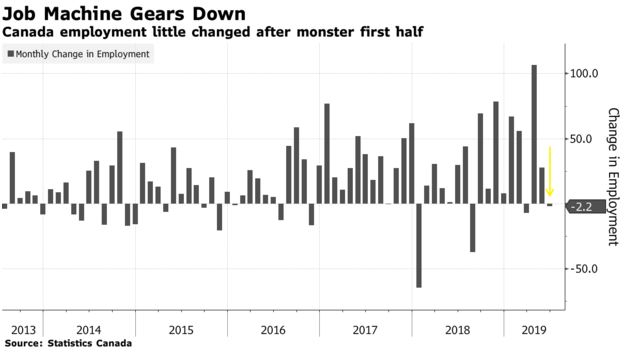Technology in Mortgages and Real Estate
 Technology is already playing a huge role in the mortgage industry. In the past, mortgage applications had to be physically taken by hand and faxed in (what’s fax anyways?!)… It may soon by possible, with technology’s help, for borrowers to be able to fill out their own application and send it, along with all supporting documentation, straight to lenders without a mortgage professional’s help – kind of scary.
Technology is already playing a huge role in the mortgage industry. In the past, mortgage applications had to be physically taken by hand and faxed in (what’s fax anyways?!)… It may soon by possible, with technology’s help, for borrowers to be able to fill out their own application and send it, along with all supporting documentation, straight to lenders without a mortgage professional’s help – kind of scary.
On the Realtor side, there is DocuSign, Realtor.ca, Zillow, and a host of other technology driven solutions that help Realtors be more efficient in their business. However, just like in mortgages, it’s coming to a point where buyers and sellers may see value in going to discount brokerages such as Redfin.
Let’s first look at the mortgage side.
Quicken Loans’ Rocket Mortgage in the States started out as an online-only mortgage application tool. The promise is faster service, with little headache, and everything done “from the comfort of your own home.”
In Canada, Scotiabank just rolled out their eHOME Mortgage application. RBC has had a Pre-Qualification Application for a year and TD rolled out their Digital Mortgage Application in early 2019.
Our own parent mortgage company, Dominion Lending Centres, brought out their “My Mortgage Toolbox” application for Mortgage Brokers to use, and other Broker houses are fast on the trail. All lenders are trying to capitalize on a Millennial’s and Generation Z’s comfort level with providing their personal information to a computer system.
The promise with all of these digital tools is to make a borrower’s mortgage journey easier, and with how technology is progressing, this digital experience is going to keep getting better and better.
Unfortunately, as with any process change, problems arise…
The first and most glaring issue with the digital mortgage experience is that because mortgages are complex, with timelines to follow and anxiety to manage, borrowers are continually requesting human interaction to answer their questions. Rocket Mortgage’s own website now advertises being able to chat online with a specialist right up front.
Secondly, although digital applications promise speed and ease of use, all mortgage files still have to have “eyes” on an application. We’re not there yet (nor will we be for the foreseeable future) where humans do not have to touch mortgage applications for final approval. This human requirement means that a mortgage file must wait in queue to be approved.
Lastly, if any file has the slightest hiccough and doesn’t conform to exactly what the computer systems need to see, an expert will have to be called in during the process to troubleshoot. As an aside, the “experts” who look at these files are salaried individuals; more on that later.
All-in-all, technology alone is not changing the mortgage market.
On the Realtor side, the biggest issue with using Redfin, or relying too much on technology driven companies, is that the Realtors who work there are most likely going to be sub-par… Yeah, I said it… Just like 1% and 2% real estate companies, if someone is working for half the commission, they are, by nature, not going to be as good or competent as someone who prides themselves on working for their due. Don’t get me wrong, there is a time and a place for those 1% and 2% real estate companies (it’s obvious due to them being around) but I believe they are not the best choice for the vast majority of clientele
Additionally, I firmly believe that in life, we get what we pay for. The best advisers and salespeople will gravitate to where they are better compensated. Salaried individuals and discount mortgage and real estate professionals will invariably move to become independent if they are any good. If they are just so-so, bad at their jobs, or are just happy to provide the bare minimum in service, they stay and let someone else hunt for business.
Technology as a Benefit:
There are ways that technology is being used for the benefit of borrowers.
The first is that in our hyper connected world, a borrower’s credit, income, and down payment can all be verified at the touch of a button. Mortgage Brokers can already pull someone’s credit bureau in seconds, and there are also services to allow us to get 3-months of bank statements for down payment verification with a client’s permission. The last step is to have our systems validate income by way of a national employer registry or by other means. In the States, this is done through their IRS and the credit bureau companies and it will come to Canada in the future. All of this means that a borrower can get firm approvals more efficiently (not having to download bank statements, get employment letters, etc.) and it will allow the professionals more time to provide advice and cater to the client’s needs.
The second benefit to borrowers is that the new applications are now able to receive documentation, communicate on application status in real time, and much more, all in one easy-to-use platform. It’s incumbent on the professional to make sure that their technologies and systems are properly integrated to provide a seamless, but better, mortgage experience for their clients.
To recap, technology will be playing a larger and larger role in how mortgages are obtained in the years to come, and in order to thrive in the 2020s, Mortgage Brokers and Realtors are going to have to use technology to the best of their abilities. The marriage between human interaction (building rapport) and providing a seamless experience through leveraging technology should dominate our thinking!



